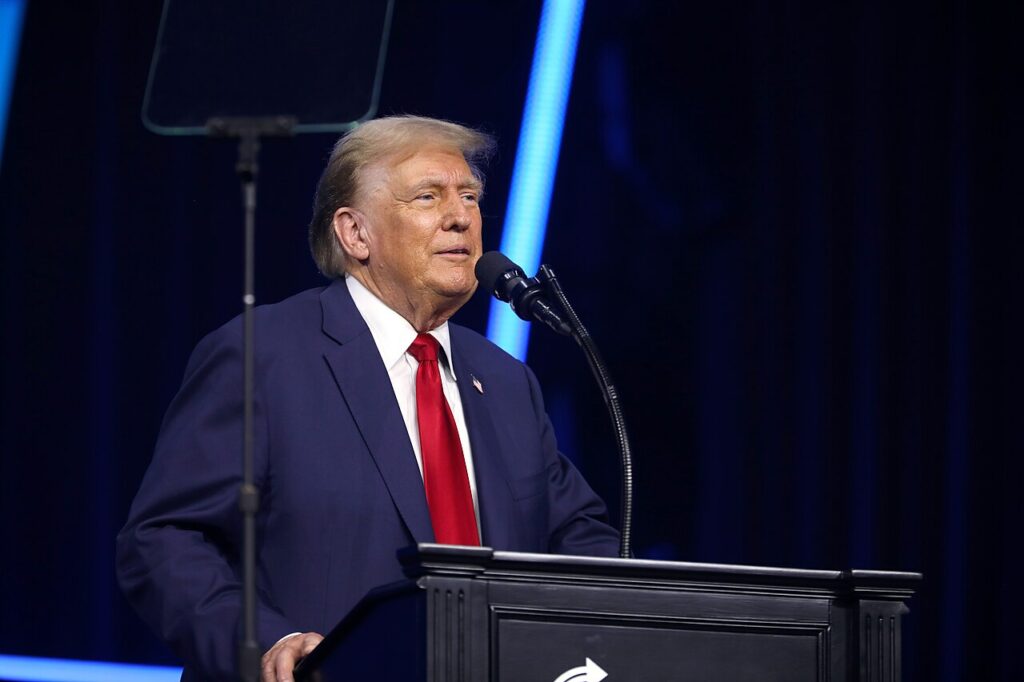After Backlash, Trump Says He Will Support Florida’s Six-Week Abortion Ban

Trump’s Abortion Stance Sparks Backlash Among Conservatives
Former President Donald Trump found himself in hot water over his stance on abortion, particularly after he expressed reservations about Florida’s six-week abortion ban. In an interview with NBC News, Trump described the ban as “too short” and initially refrained from taking a firm position on a state ballot measure that would expand access to the procedure. This indecision led to a day of damage control as Trump sought to clarify his views, ultimately coming out against the proposed amendment, which would bar restrictions on abortion before fetal viability, around 24 weeks of pregnancy. Trump’s shift came amid intense pressure from anti-abortion advocates who were alarmed by his initial comments, according to a report by NBC News.
Trump’s Clarification and the Backlash
On Friday, Trump reiterated that women need more than six weeks to make a decision on abortion but emphasized that Democrats’ approach to abortion was “radical,” referring to their support for late-term abortions. He confirmed he would vote against the amendment, citing the extreme positions he attributed to his opponents. This clarification followed a conversation with Marjorie Dannenfelser, president of Susan B. Anthony Pro-Life America, who urged Trump to be clear about his opposition to the amendment, highlighting the importance of his stance to his pro-life supporters.
Trump’s initial comments and subsequent attempts at clarification have sparked a wave of criticism from anti-abortion activists. Albert Mohler, an influential evangelical theologian, expressed concern that Trump’s statements could alienate pro-life voters. Similarly, Kristan Hawkins, president of Students for Life, warned that Trump’s wavering on the issue could cost him the support of many volunteers who have been crucial to his previous campaigns.
Navigating the Post-Roe Landscape
The controversy comes as Trump and the Republican Party face their first presidential election since the overturning of Roe v. Wade, a landmark decision that had protected abortion rights for nearly half a century. The GOP, once unified in its opposition to abortion, now finds itself navigating a more complex landscape where public opinion is increasingly supportive of maintaining access to abortion. While Trump has taken credit for appointing the Supreme Court justices who overturned Roe, his current struggle to articulate a clear position on abortion reflects the broader challenges facing the Republican Party.
Anti-abortion advocates are grappling with whether to continue supporting Trump, given his recent remarks, or to look for alternative candidates who might more steadfastly represent their views. This internal conflict highlights the precarious position of the GOP as it seeks to balance the demands of its base with the shifting sentiments of the broader electorate.
GOP Concerns and Democratic Reactions
The backlash against Trump has raised concerns among some Republicans that his approach to the abortion issue could hurt the party’s chances in the upcoming election. Conservative radio host Erick Erickson warned that Trump’s improvisational handling of the abortion debate might alienate the pro-life community, potentially costing him the election.
On the Democratic side, Vice President Kamala Harris’s campaign has seized on Trump’s perceived inconsistency, arguing that he cannot be trusted to protect reproductive rights. Harris’s campaign emphasized that Trump’s wavering on abortion, combined with his support for restrictions on birth control and in vitro fertilization, poses a significant threat to women’s rights. The campaign vowed to hold Trump and his running mate, J.D. Vance, accountable for the impacts of their policies on reproductive health.
The Road Ahead
As the debate over abortion continues to dominate the political landscape, Trump’s position remains under scrutiny. His recent statements have sparked a significant backlash among key conservative groups, raising questions about his ability to maintain their support in the lead-up to the 2024 election. With the GOP divided and the electorate increasingly polarized, the issue of abortion will likely continue to be a critical factor in shaping the future of American politics.

